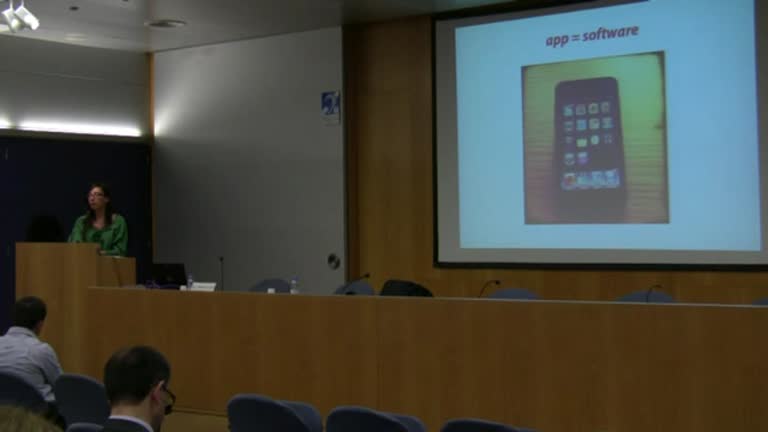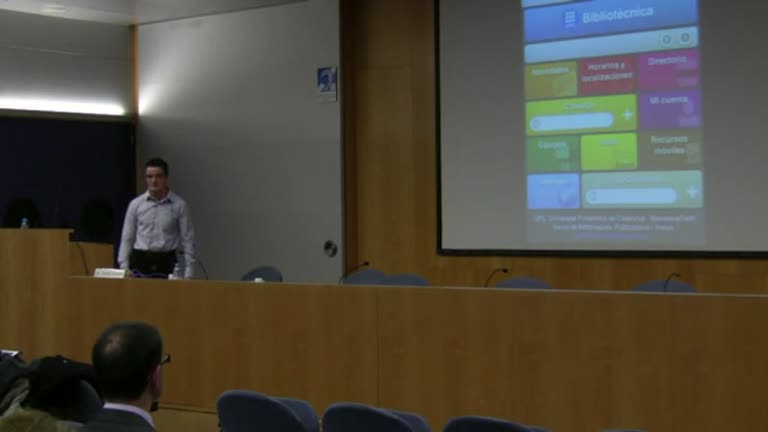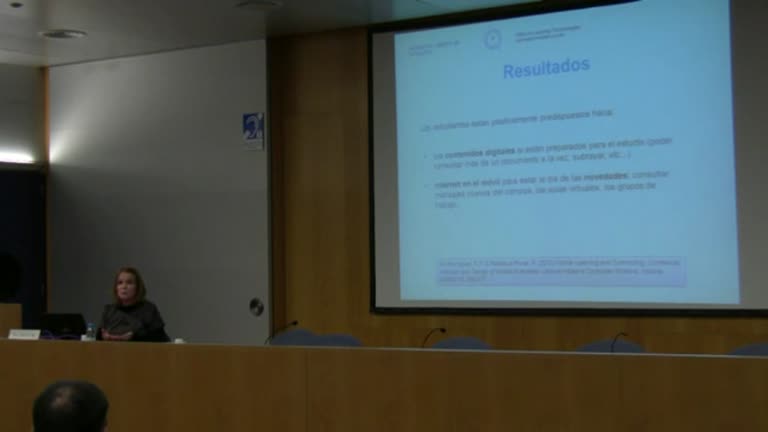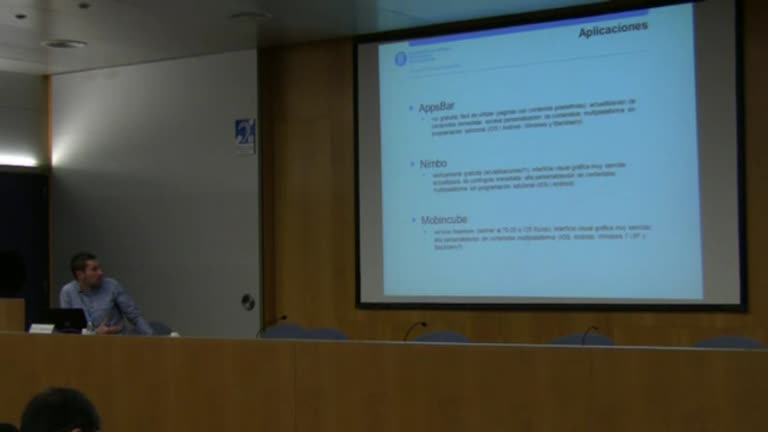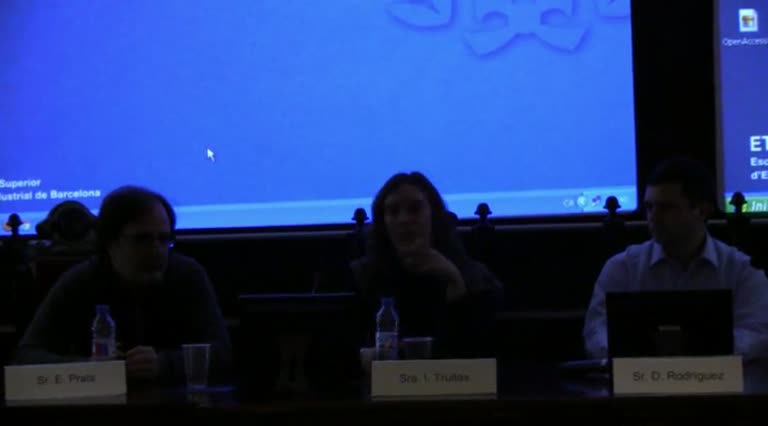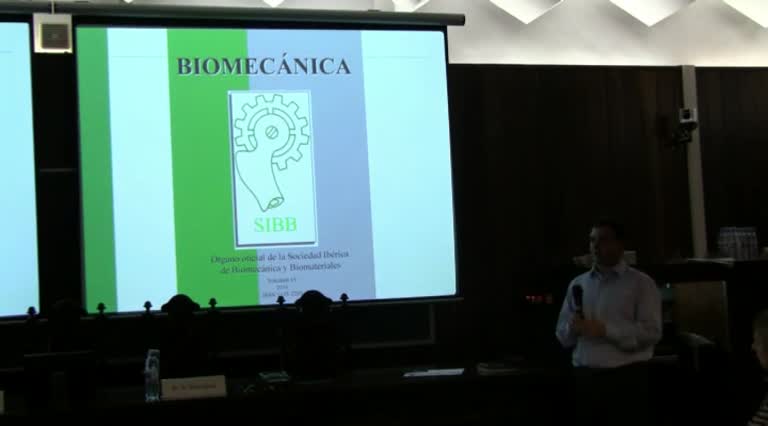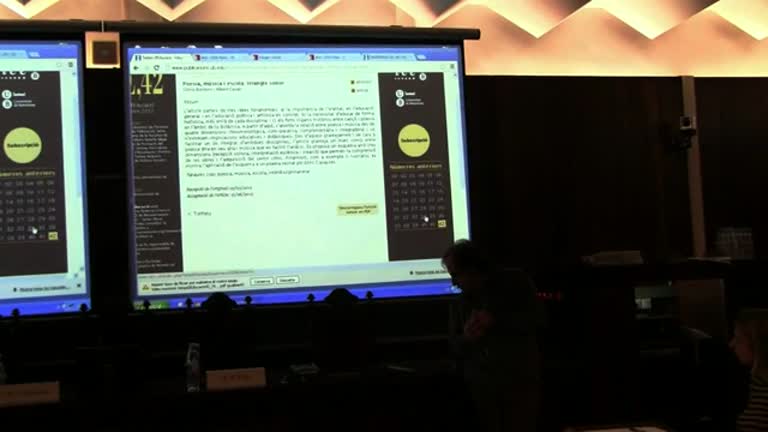Objectes multimèdia amb l’etiqueta: Serveis
Resultats de la cerca
Fracking: cercant gas a les fissures
Accés obert
8 de febr. 2013
Els projectes per explorar possibles jaciments de gas mitjançant la tècnica de la fracturació hidràulica - més coneguda pel terme anglès fracking - desperten recels en els territoris afectats.
La fracturació hidràulica és una tècnica d’extracció de gas i petroli del subsòl que requereix la perforació del terreny i la injecció a gran pressió d’un fluid – format per aigua, sorra i productes químics –. Aquest fluid és capaç de reobrir i ampliar les fractures o fissures més febles que ja tenien les roques, i alliberar el gas que s’hi ha anat dipositant amb els segles.
Les fissures són obertures naturals de les roques en forma d’esquerda i poden ser més o menys profundes. L’investigador Xavier Sanchez Vila, director del Departament d’Enginyeria del Terreny, Cartogràfica i Geofísica de la UPC, explica en aquest vídeo com s’aconsegueix fer fluir el gas per aquestes fissures i què permet la tecnologia del sondeig horitzontal teledirigit.
La fracturació hidràulica és una tècnica d’extracció de gas i petroli del subsòl que requereix la perforació del terreny i la injecció a gran pressió d’un fluid – format per aigua, sorra i productes químics –. Aquest fluid és capaç de reobrir i ampliar les fractures o fissures més febles que ja tenien les roques, i alliberar el gas que s’hi ha anat dipositant amb els segles.
Les fissures són obertures naturals de les roques en forma d’esquerda i poden ser més o menys profundes. L’investigador Xavier Sanchez Vila, director del Departament d’Enginyeria del Terreny, Cartogràfica i Geofísica de la UPC, explica en aquest vídeo com s’aconsegueix fer fluir el gas per aquestes fissures i què permet la tecnologia del sondeig horitzontal teledirigit.
Del grafit al grafè: una nova era tecnològica basada en el carboni
Accés obert
10 de des. 2012
El carboni és probablement l’element químic més estudiat i més fascinant de la taula periòdica. Durant molt de temps es va creure que el carboni pur existia en forma de dos tipus de materials: el grafit -emprat per fabricar les mines dels llapis- i el diamant. La recerca científica va demostrar a principis de segle que era possible aïllar i manipular làmines de grafit per obtenir-ne grafè.
El grafè és un nanomaterial d’un àtom de gruix, que representa una capa d’àtoms de carboni densament empaquetats en una capa plana cristal·lina bidimensional en forma d’hexàgons, com si es tractés d’un eixam d’abelles. L’any 2010 el Premi Nobel de Física Obre en finestra nova es va atorgar a Andre Geim i Konstantin Novoselov pels seus innovadors experiments amb el grafè. Tot i que no van ser-ne els descobridors, van obrir la porta per poder-lo estudiar. Amb l'objectiu d'aconseguir un grafè prou pur, l’any 2004 van aconseguir aïllar-lo al laboratori amb el conegut mètode del llapis i la cinta adhesiva. Amb un tros de grafit, com el que s’utilitza en la mina d’un llapis, i mitjançant una cinta adhesiva, van exfoliar el grafit en làmines cada cop més primes fins que van obtenir una pel·lícula de carboni amb un gruix d’un sol àtom: el grafè. Aquesta tècnica artesanal pot ser utilitzada per obtenir-ne en quantitats molt petites al laboratori, però és insuficient per a una fabricació industrial, tal com ens explica Roberto Macovez, investigador del Departament de Física i Enginyeria Nuclear.
El grafè ofereix propietats -gran resistència mecànica, transparència i una elevadíssima conductivitat elèctrica- que han fascinat els científics de tot el món per les seves potencials aplicacions tecnològiques.
El grafè és un nanomaterial d’un àtom de gruix, que representa una capa d’àtoms de carboni densament empaquetats en una capa plana cristal·lina bidimensional en forma d’hexàgons, com si es tractés d’un eixam d’abelles. L’any 2010 el Premi Nobel de Física Obre en finestra nova es va atorgar a Andre Geim i Konstantin Novoselov pels seus innovadors experiments amb el grafè. Tot i que no van ser-ne els descobridors, van obrir la porta per poder-lo estudiar. Amb l'objectiu d'aconseguir un grafè prou pur, l’any 2004 van aconseguir aïllar-lo al laboratori amb el conegut mètode del llapis i la cinta adhesiva. Amb un tros de grafit, com el que s’utilitza en la mina d’un llapis, i mitjançant una cinta adhesiva, van exfoliar el grafit en làmines cada cop més primes fins que van obtenir una pel·lícula de carboni amb un gruix d’un sol àtom: el grafè. Aquesta tècnica artesanal pot ser utilitzada per obtenir-ne en quantitats molt petites al laboratori, però és insuficient per a una fabricació industrial, tal com ens explica Roberto Macovez, investigador del Departament de Física i Enginyeria Nuclear.
El grafè ofereix propietats -gran resistència mecànica, transparència i una elevadíssima conductivitat elèctrica- que han fascinat els científics de tot el món per les seves potencials aplicacions tecnològiques.
El grafè: un univers en miniatura
Accés obert
7 de des. 2012
En un llapis disposem d’un bon grapat de milions de làmines de grafè. La clau d’aquest material és la seva estructura atòmica: àtoms de carboni units de forma hexagonal en una única làmina ordenats de tal manera que li donen unes propietats molt especials. L’investigador Roberto Macovez, del Departament de Física i Enginyeria Nuclear, explica en aquest vídeo l’estructura atòmica del grafè.
El grafè presenta una estructura atòmica laminar plana d’un àtom de gruix, formada per àtoms de carboni que formen una xarxa cristal·lina mitjançant enllaços covalents. És aquesta estructura atòmica la que dóna origen a les exòtiques propietats: el grafè és un material elàstic, dur i resistent -100 vegades més que l’acer-, lleuger -com pot ser la fibra de carboni- i flexible. És gairebé transparent i ofereix una gran conductivitat, tant elèctrica com tèrmica
El grafè presenta una estructura atòmica laminar plana d’un àtom de gruix, formada per àtoms de carboni que formen una xarxa cristal·lina mitjançant enllaços covalents. És aquesta estructura atòmica la que dóna origen a les exòtiques propietats: el grafè és un material elàstic, dur i resistent -100 vegades més que l’acer-, lleuger -com pot ser la fibra de carboni- i flexible. És gairebé transparent i ofereix una gran conductivitat, tant elèctrica com tèrmica
El grafè, futur substitut del silici?
Accés obert
2 de des. 2012
La capacitat de conducció del grafè ha fet plantejar la possibilitat que esdevingui un possible material alternatiu al silici en la fabricació dels futurs dispositius informàtics i electrònics. L’investigador Roberto Macovez, del Departament de Física i Enginyeria Nuclear, explica en aquest vídeo les principals propietats d’aquest material i les seves possibles aplicacions. En aquest sentit, la comunitat científica considera que es tracta d’un material que pot revolucionar la tecnologia electrònica actual, especialment quan se n'aconsegueixi optimitzar la producció industrial.
Discurs d'investidura com a doctora 'honoris causa' de la professora Barbara Jane Liskov
Accés obert
25 d’oct. 2012
La professora Barbara Jane Liskov va néixer a Califòrnia el 7 de novembre de 1939. Llicenciada en Matemàtiques per la Universitat de Berkeley l'any 1961, va ser la primera dona als Estats Units que va obtenir un doctorat en Ciències de la Computació, que va cursar a la Universitat d'Stanford. La seva tesi doctoral estava dedicada a la programació de computadors per jugar als escacs i als jocs en general.
Pionera en el món de la informàtica i membre de l'Acadèmia Nacional d'Enginyeria dels Estats Units ha estat guardonada amb els premis més prestigiosos de l'enginyeria informàtica, com ara la medalla John von Newmann i el premi Turing, i els seus llibres i publicacions científiques són un referent internacional.
El nomenament de Barbara Jane Liskov, professora del Departament d’Enginyeria Elèctrica, Electrònica i Informàtica del MIT, com a doctora honoris causa ha estat proposat per la Facultat d’Informàtica de Barcelona (FIB) de la UPC, amb el suport d’altres centres docents i departaments de la Universitat, d’empreses i d’institucions, en reconeixement a la seva tasca i a les seves contribucions fonamentals al disseny dels llenguatges de programació de computadors. També es volen reconèixer les seves aportacions a la metodologia de la programació, especialment en els àmbits de l’abstracció de dades, la tolerància a fallades i la computació distribuïda.
Pionera en el món de la informàtica i membre de l'Acadèmia Nacional d'Enginyeria dels Estats Units ha estat guardonada amb els premis més prestigiosos de l'enginyeria informàtica, com ara la medalla John von Newmann i el premi Turing, i els seus llibres i publicacions científiques són un referent internacional.
El nomenament de Barbara Jane Liskov, professora del Departament d’Enginyeria Elèctrica, Electrònica i Informàtica del MIT, com a doctora honoris causa ha estat proposat per la Facultat d’Informàtica de Barcelona (FIB) de la UPC, amb el suport d’altres centres docents i departaments de la Universitat, d’empreses i d’institucions, en reconeixement a la seva tasca i a les seves contribucions fonamentals al disseny dels llenguatges de programació de computadors. També es volen reconèixer les seves aportacions a la metodologia de la programació, especialment en els àmbits de l’abstracció de dades, la tolerància a fallades i la computació distribuïda.
6. Daniel Rodríguez Rius. Dept. Ciència i Enginyeria dels Materials (UPC)
Accés obert
23 d’oct. 2012






